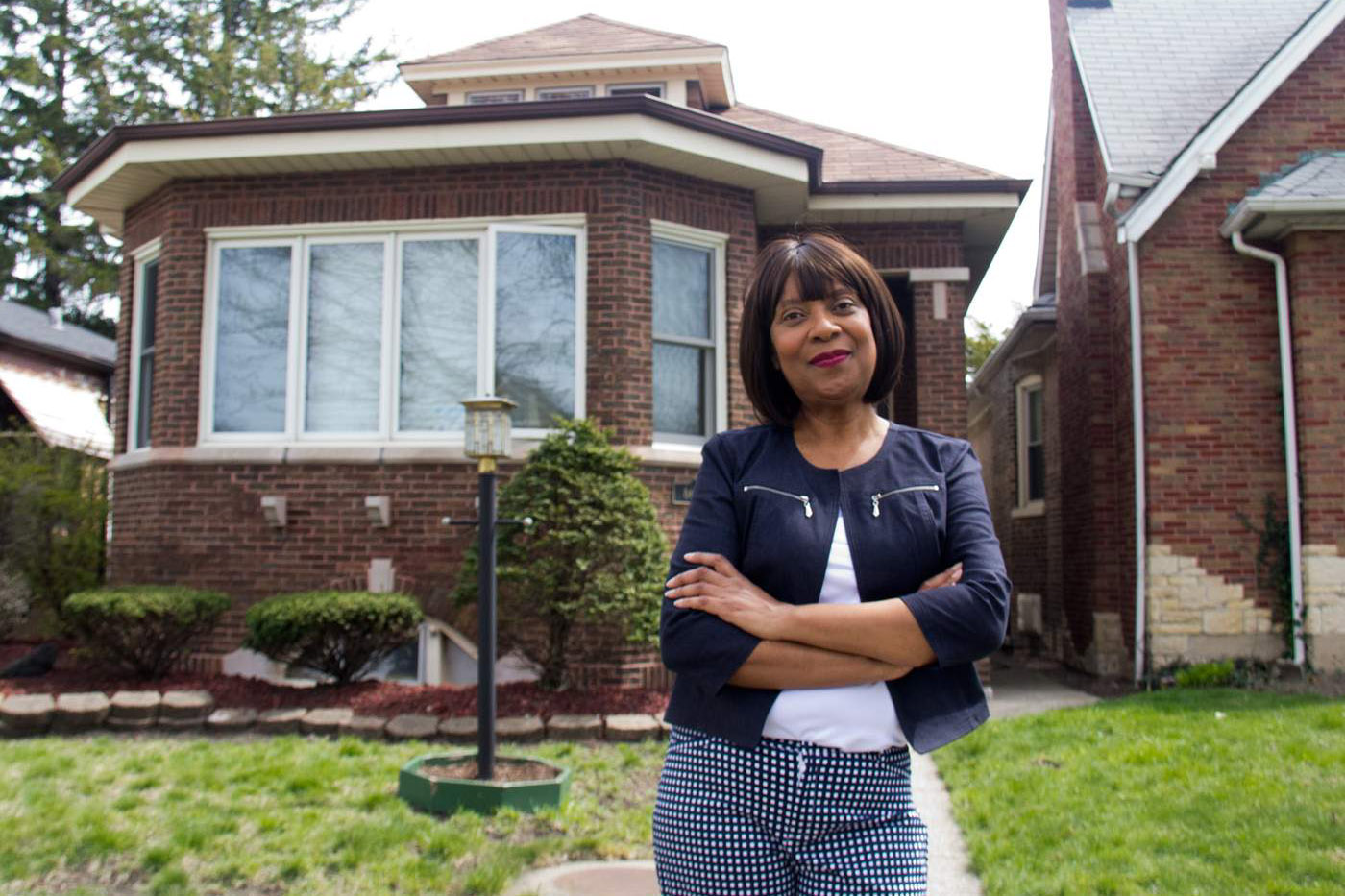Cheryl Watson lives in the house where she grew up and doesn’t want to leave. But regular and relentless flooding, exacerbated by climate change, is destroying her home.
She lives in the Chatham neighborhood, a place long known as the jewel of Chicago’s South Side. Back in the 1950s, when Watson was a little girl, something about this place felt special to her; it was full of black-owned businesses and perfectly manicured lawns.
“Everyone knew each other for miles around,” Watson says. “The churches were teeming with residents. All the kids played in the park together. So there was that greater family feeling.”
LISTEN: “A Climate Fight on Chicago’s South Side”
But in a segregated city like Chicago, Chatham had to fight to get what it needed. Over the years, neighbors had lobbied the city for better schools and fixed-up streets. Perhaps because everything was so hard won, people took a lot of pride in their homes. Before Watson’s dad passed away, he asked her to keep the house in the family.
“So this is something I’d really, really like to hold on to for the rest of my life,” she said.
But holding on to her home may not be easy. The Chatham neighborhood is, in a way, in the middle of a climate change disaster. It’s not the kind of disaster you normally think of: There’s no huge event with TV cameras and Red Cross campaigns. It’s something less visible.
Over the years, cities everywhere have paved over dirt and grass and added more parking lots, streets and sidewalks. That means when it rains, there are fewer permeable surfaces to absorb the rain. And since the water doesn’t have anywhere to go, it fills streets and seeps into people’s foundations.
This kind of urban flooding is increasing as the climate changes. And it will change. The National Climate Assessment said in the Midwest we can expect heavier rains, so much so that the City of Chicago’s Climate Action Plan singles out flooding as an issue the city is facing.
But Watson already knew all that—she can measure it by the water marks in her basement. They’ve gotten higher over time. Still, it was hard to connect it to climate change because it’s rarely thought of as something individuals in the Midwest see in daily life.
Continue reading this story at WBEZ »
###
This story was produced by WBEZ, Chicago’s NPR news station. And be sure to check out more stories in WBEZ’s “Heat of the Moment” series, which explores the impacts of climate change on our everyday lives. Support for “Heat of the Moment” is provided by The Joyce Foundation, which works to improve quality of life, promote community vitality and achieve a fair society.

